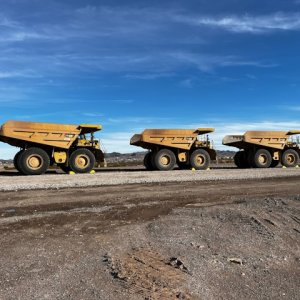Mining Concessions Need a New Framework

STORY INLINE POST
Q: What is the state of the Mexican mining industry one year into the López Obrador administration?
A: Mixed messages have set the tone in 2019. On the one hand, there is an Undersecretary of Mining visibly committed to the sector. On the other hand, organisms such as the Ministry of Environment sometimes send unfavorable signals. This has been hard on the industry and some projects have even been stopped. Another example of this inconsistency is the president’s declarations about no new concessions, when, in fact, some new concessions are being granted. One of the problems is that the authorities are often misinformed regarding the number of concessions that currently exist in Mexico. Around half of them have been canceled at some point in the past; nevertheless, they have not been officially taken off the registry. Thus, for statistical purposes, they are still considered as concessions, but for real and practical purposes, those areas are no longer active in mining. Mexico needs to update its administrative processes so that accurate information is available.
Having said that, 2019 has had many areas of opportunity and growth. Companies are still eager to explore and produce, as the demand for the mining industry’s products is projected to grow in the coming years. The main thing that Mexico is missing in order to capitalize on mining’s incipient upturn is guaranteeing policy and legal certainty for investors. Otherwise, capital will be funneled to other jurisdictions, which would be a shame, given Mexico’s long mining tradition.
Q: In a scenario of no new concessions, what strategies can the industry follow to keep exploring for mineral deposits?
A: There is no legal basis for not granting new concessions. It is strictly a policy decision. Nevertheless, if this is the path the government chooses to follow, the best way to keep a certain amount of dynamism in Mexico’s mining industry is releasing the land rights of those concessions that have been canceled or withdrawn. If the General Directorate of Mines did this, then anyone could claim the right to look for and exploit minerals under the surface of those lands. This strategy would consist in reassigning mining concessions, instead of granting new ones. The government would not have to violate its policy, and the industry would be stimulated. It is hard to say, but it would be safe to estimate that around half of the concessions in the registry are in the following situation: they have been canceled but the General Directorate of Mines has not freed up the land for another player to request a new concession. These concessions, amounting to thousands, are in a sort of legal limbo.
But regardless of what the government decides to do, a sound strategy for mining companies would be to recover those canceled concessions. A legal mechanism would have to be devised for this end. This mechanism would involve paying any overdue fees that the original concessionaire had and transferring the rights to another interested party. Idle areas would thus be reactivated. The original concessionaire is essential in this proposal. This is due to the fact that the procedure for effectively canceling a mining concession does not end until the land is officially freed up. Therefore, the individual or company interested in acquiring the concession would have to negotiate with the original concessionaire. The cancellation process would be reversed, and the new concessionaire would assume the original rights. He would then be free to undertake mining-related activities in the area — after reaching an agreement with whoever owns the surface land, of course.
Q: How can indigenous consultations be implemented so as to benefit communities and companies?
A: This is an interesting and little explored topic that has opened the door for abuses to groups that oppose mining. They say that the mining law does not take into account indigenous and agrarian communities. This does not correspond to the truth. The mining law not only takes these communities into account but gives them a right of preference. For example, if a company wishes to apply for a mining concession on the lands of an indigenous or agrarian community, the latter is favored by the law. Although the normal procedure is a lottery and anyone can submit an application, if the community that owns the land applies for a concession, then the lottery is stopped and the concession goes to the community. Therefore, it is misleading to say that mining law does not consider indigenous and agrarian communities. What is important to flesh out is the difference between there being some indigenous individuals on the land, and there being an actual indigenous community. Indigenous individuals are everywhere in Mexico. But this does not mean that there is a community, which has to be clearly defined and recognized by a third party. ILO Convention 169 is sufficiently integrated into Mexican law. It is not a matter of changing regulations, but of enforcing existing ones. Again, lack of information is at the root of the controversy. The fact that a concession is granted does not mean that the community will be impacted in any significant way. Exploration activities have a very small impact, and most exploration projects do not end up in an actual mine. Communities in mining regions and the public at large have to be better informed. Perhaps a step to this end could be reinstating a specific concession for exploration activities. Thus, communities would have total confidence that a concession for exploring the resources beneath their lands will not have any environmental impact. Later on, if a significant discovery is made, a new negotiation with its corresponding environmental impact report would be carried out. This gradual approach would enable companies and communities to build stronger relations.








 By Alejandro Ehrenberg | Journalist and Industry Analyst -
Tue, 01/28/2020 - 10:27
By Alejandro Ehrenberg | Journalist and Industry Analyst -
Tue, 01/28/2020 - 10:27
















